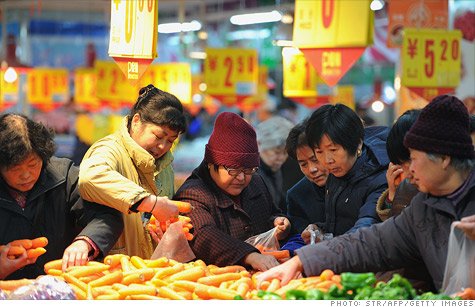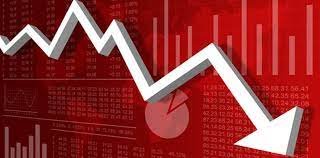Producer Price Index (PPI) in China rose 10.7% as coal prices soar amid the power crisis. The governor of the People's Bank of China (PBOC) said at the G-20 summit that inflation in the country remains "moderate".
The producer price index in China in September 2021 increased the most in nearly 26 years, thus increasing global inflationary pressure as businesses will have to push higher costs to consumers.

The producer price index rose 10.7% from a year earlier, beating forecasts and hitting its highest level since November 1995, as coal prices and other commodity costs skyrocketed, data from said the National Bureau of Statistics.
There is little evidence that consumer goods factories are pushing higher input costs for customers, with consumer prices rising at a slower rate of 0.7% last month. That could change, however, as manufacturers' profits shrink and China raises electricity prices amid the energy crisis.
People's Bank of China Governor Yi Gang told the G-20 forum that China's inflation was "moderate", according to a statement on the central bank's website. He reiterated that monetary policy will be flexible, targeted, reasonable and appropriate.
Countries from Latin America to Europe have seen higher-than-normal consumer price inflation this year. U.S. data on Wednesday showed consumer prices rose 5.4 percent in September from a year earlier, even as the Federal Reserve asserted that much of the price pressure was temporary. of the global economy emerging from the pandemic.
As the world's largest exporter, China's prices are another risk factor for the global inflation outlook. However, economists generally consider the effect to be rather small because the basket of products that countries use to calculate consumer prices tends to contain more domestically produced services than consumer goods from China. Country. Research by Standard Chartered Plc shows only a moderate correlation between China's CPI and US consumer prices in recent years.
As the world's largest exporter, rising prices in China can be seen as a major risk to the global inflation outlook.
China's energy shortage is starting to have major impacts around the globe, with everyone from Toyota to Australian shepherds to cardboard box manufacturers. affected with varying degrees of severity.
A dire power shortage in the world's biggest exporter is starting to hurt China's own growth, as the impact on supply chains could hurt global economic growth. currently struggling to recover from the COVID-19 pandemic.
The energy crisis in China hit the world at a worse time. The world transport industry is currently struggling with congested supply chains, delayed transportation of goods such as clothes or toys. In addition, China is also starting the harvest season of agricultural products for export, this fact cannot help but make many people fear about the scenario of escalating food costs.
